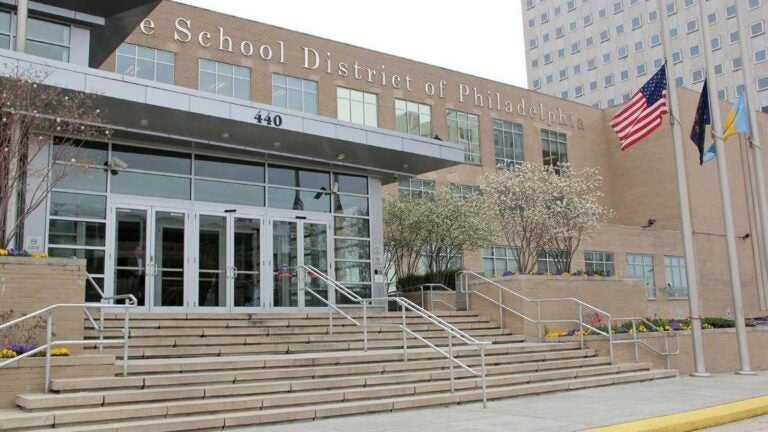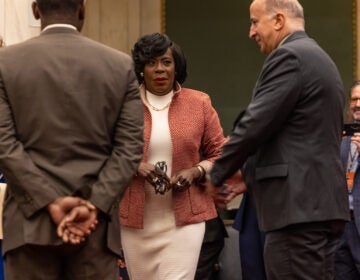Philadelphia school district to end controversial practice of leveling
The district will use central office cuts and energy savings to fund the discontinuation of a process that moves educators early in the school year based on enrollment.

Shown is the School District of Philadelphia headquarters off North Broad Street. (Tribune file photo)
This story originally appeared in The Philadelphia Tribune.
The School District of Philadelphia announced Tuesday that it will be ending its practice of leveling, a process that moved educators early in the school years based on enrollment.
The district will instead allocate up to $8.8 million from the central office cuts and energy savings to fund the discontinuation of leveling in any school or classrooms after the beginning of the school year.
“We are committed to investing and protecting our classrooms from budget cuts, to the extent that we can,” said School District Superintendent Tony Watlington in a statement. “We have taken the following financial responsibility measures, which include reducing central office budgets without laying off employees.”
In addition to cutting the costs at the central office, the school district will also implement data-driven program evaluations and continue to partner with the Fund for the School District of Philadelphia for initiatives pertaining to the five-year strategic plan.
“In order to adequately and equitably staff every school to meet the needs of all district students, we will be implementing process improvements and increasing outreach efforts to students and families during the summer months to get more accurate enrollment information heading into the school year,” Watlington said.
The news comes after the process has raised concerns from community stakeholders about its impact on students, staff and schools.
In February, City Council held a hearing on leveling, which was sponsored by Majority Leader Katherine Gilmore Richardson and Councilmember and Education Committee Chair Isaiah Thomas.
“Young people need stability to thrive — students and teachers staying in the same classrooms they started in is essential to ensuring we meet our learning outcomes as a city,” Thomas said.
“This has been something students, families, educators administrators and organized labor have been asking to be addressed for years,” he said. “I’m glad all parties have come together to implement a solution that meets everyone’s needs and sets our young people in the best position.”
Over the last year, district officials said it had engaged with elected officials, students, teachers and school communities about the practice and looked at several ways to extend its operating budget development process starting in fiscal year 2025.
“Several students confirm that students, particularly Black students and students from low-income backgrounds in grades kindergarten to third, benefit from reduced class size,” Richardson said.
“Benefits include increased academic achievement and social development,” she added. “By reallocating approximately $8.8 million from Central Office cuts and energy savings, the decision to end the practice of leveling helps to put our young people first.”
Every year, the school district would move teachers in mid-October based on enrollment needs across the district in the practice of leveling. However, leveling did not occur during the pandemic.
According to district officials, 50 out of 9,000 teachers were reassigned to another school due to leveling last fall. Leveling did not take place during the pandemic.
The district allocates teachers based on the formula of one teacher per 30 students in grades K-3, one teacher to 33 students in grades 4-12 and one teacher to 24 students in career and technical education programs.
Philadelphia Federation of Teachers President Jerry T. Jordan said the ending of leveling will help students and staff have stability during the duration of the school year.
“The decision to eliminate leveling is a sound one and a very welcome one,” Jordan said in a statement. “It will allow both children and staff important stability at the start of the school year that will help set the trajectory for a strong year.
“Over the years, we have worked to mitigate the challenges set forth by the process of leveling,” he said. “To know the district recognizes and appreciates the importance of a stable staff is significant.”

Get daily updates from WHYY News!
WHYY is your source for fact-based, in-depth journalism and information. As a nonprofit organization, we rely on financial support from readers like you. Please give today.






